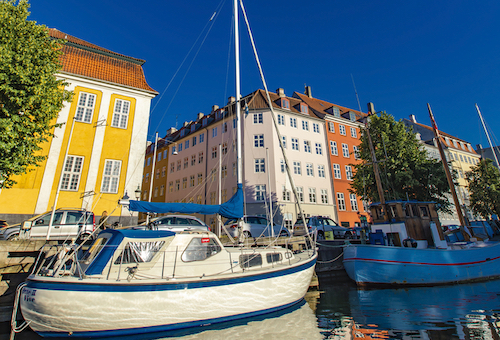As an expat, the quality of healthcare that you can expect in Denmark will depend on whether you are accessing the public or the private healthcare sector.
Overall, the quality of healthcare in the country is deemed to be of a high standard, operating on a universal healthcare model and funded by taxes and national insurance contributions. The system is granted a high percentage of GDP for an OECD country – over 10% – and Denmark is currently investing heavily into new hospital infrastructure.Everyone who pays into the system is eligible for state healthcare: if you are not registered and are from outside the EU, you will be able to access emergency care but will need private insurance to cover routine medical treatment.
Public healthcare in Denmark
The WHO reports that Denmark “generally provides good access to high-quality care, with comparatively low levels of unmet need for medical care”. It notes that care for indviduals suffering from chronic conditions could be better co-ordinated, but also notes that despite issues such as smoking and obesity, Danish life expectancy is generally on the rise.
The WHO also says that Denmark has a relatively low gap between low and high income groups and that its information structure is ‘first rate.’ Among native Danes, the leading causes of death are cancer and cardiovascular diseases.
The national health insurance scheme covers:
• visits to your doctor
• hospital stays
• part of your medication
• maternity care
• some alternative or complementary therapies
• some physiotherapy
• some psychiatric care
• some chiropractic care
• basic dental treatment
Costs for dental treatment are deducted at the time, rather than via a reimbursement system. You will be able to choose your own dentist, and if you have children under the age of 18, their dental treatment will be free.
If you need to see a doctor, once you have registered with the local practice of your choice, you will usually be seen within 1-2 days in the case of an acute medical problem, although there may be a waiting period for more minor illnesses.

In the case of an emergency you will be treated at the local hospital, but otherwise you may need a referral from your doctor in order to be seen by a specialist. Both visits to your GP and, if referred, to a specialist will be covered by your yellow card.
You can also access an emergency doctor (lægevagt) via your region’s emergency service: you will need your CPR number but the service will be able to put you in contact with an on-call doctor. Most doctors speak English.
Pharmacies have regular opening hours (usually between 9am and 5pm on weekdays) and you will be able to collect your prescription here, or pick up any over-the-counter medication.

The standard of Danish maternity care is high, with most mothers giving birth in the public hospital system: mothers may also be offered a stay in a ‘maternity hotel’ to optimize care for the baby immediately after birth. Expat mums have described the level of care – pre-natal, during birth and post-natal – as very good.
Responsibility for the planning of standard hospital services is split between Denmark’s regions, while the Danish Health Authority is responsible for planning the overall distribution of specialised care in order, it says, to “improve and ensure quality and continuity of care, while at the same time ensuring efficient use of resources.”
Specialised services are divided between hospitals, with one in three institutions having specialist care. The municipalities, such as Copenhagen, are heavily fined for every day that an older person stays in a hospital ward when they could go home, so hospital stays are monitored.

In the outlying regions, such as Greenland (which took over the running of healthcare from Denmark in 1992), standards of healthcare may vary and access to emergency treatment may prove challenging. In the Faroe Islands healthcare is free at the point of delivery, but you may wish to take out private insurance if you are visiting these parts of the Danish Kingdom for additional peace of mind.
Private healthcare in Denmark
Expats may want to consider private cover as an international extension to any existing home country health insurance they might have, as there are reports of long waiting times for some forms of treatment. However, this is balanced by the fact that there are not a large number of private facilities in Denmark.
Taking out private cover will speed up your access to treatment and also in some cases to diagnosis. As is often the case with private medical insurance, it will cover areas not currently covered under the state system, like some forms of alternative therapy.

The cost will depend on factors such as your age and any pre-existing conditions, and the kind of package you opt for. A more expensive insurance package will give you a more extensive range of treatment and facilities.
As so many variables have an effect on the cost of international private medical insurance in Denmark it becomes very difficult to give accurate estimates without knowing the full details of the coverage required. However, as a very rough guide, using a standard profile of a 40 year old British male with no deductibles, no co-insurance, a middle tier plan/product, all modules included and worldwide coverage excluding the US, a ballpark price of around £4,000/$5,000 might be expected. Were coverage to be expanded to include the US then the premium could increase to almost double that amount.
Note that you may be eligible for Group 2 insurance, which is a form of state health insurance and not technically private, but which will open up access to some of the system for you: it is a kind of halfway house. Also, check with your employer, as some companies will have group packages with private insurers which are available to employees.
Some private hospitals with specialist care have made agreements with one or more regional authorities to provide services in case of capacity problems at the public hospitals, so even if you are under the national scheme, you may find yourself having some treatment in the private sector.
Would you like to share your experience of life abroad with other readers? Answer the questions here to be featured in an interview!

